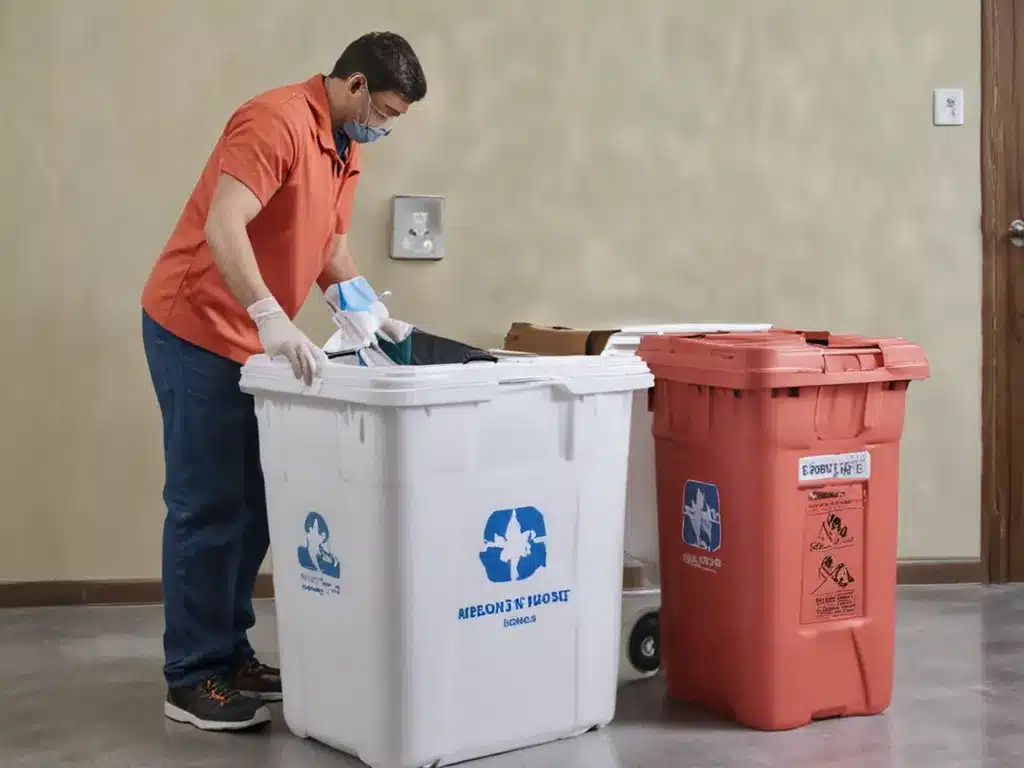Introduction
Medical waste generated at home needs to be disposed of properly to avoid harming the environment or spreading infections. As a patient managing my healthcare at home, I need to learn how to dispose of unused medications, used needles and syringes, soiled dressings, expired medical devices, and other hazardous items in a responsible manner. This article provides in-depth information on the types of medical waste generated at home and the recommended disposal methods.
Types of Medical Waste Generated at Home
Medications
-
Expired or unused medications – These include pills, liquids, ointments, drops, inhalers, creams, or injectable medications that I no longer need or that have reached their expiration date. Improperly discarded medications can contaminate water supplies or cause accidental poisoning if ingested.
-
Used sharps – Sharps are items that can puncture or cut skin. Used needles, syringes, lancets, and auto-injector pens that I have used to administer medication at home need to be disposed of in rigid, puncture-proof containers to prevent needlestick injuries.
-
Soiled dressings and bandages – These include gauze, bandages, wound coverings, or absorbent pads contaminated with blood or bodily fluids. They represent an infection risk if not discarded properly.
Medical Devices
- Expired or broken medical devices – Items like blood glucose meters, infusion pumps, ** and CPAP machines** need special handling when I longer use them or they stop functioning. They contain hazardous materials and should not go in the regular trash.
Bodily Fluids and Human Tissue
- Blood, body fluids, or human tissue – Although not common, some home healthcare procedures like dialysis can generate waste like blood, bodily fluids, or tissues. This waste requires precautions to avoid spreading infections.
Recommended Disposal Methods
Medications
-
Return unused medications to pharmacy drop-boxes – Many pharmacies have drop-boxes to accept unused or expired medications. This allows proper disposal rather than flushing them or placing them in the trash.
-
Mix medications with unpalatable substances – If pharmacy disposal is not possible, I can mix medications with substances like cat litter or coffee grounds in a sealed plastic bag before putting in the trash to prevent misuse.
-
Use medication take-back events – My community may sponsor periodic medication take-back events allowing me to bring unused medications to a central location for proper disposal.
Used Sharps
-
Use FDA-cleared sharps containers – I should discard used needles, syringes and lancets in a puncture-proof container made specifically for sharps. Many pharmacies sell affordable sharps containers with mail-back programs.
-
Place in rigid plastic bottles – In an emergency, I can place used sharps in an empty detergent bottle or plastic container with a screw-on lid and label it before placing in the trash.
Soiled Dressings and Absorbent Pads
- Double bag before trash disposal – After using dressings or pads for wound care, I should double bag them in plastic bags securely tied at the top before placing in my regular household trash. This contains any blood or fluids.
Medical Devices
- Utilize take-back programs – For discarded home medical devices like monitors or CPAP machines, I should contact the manufacturer to locate recycling or take-back programs so hazardous components can be removed prior to disposal.
Blood, Body Fluids and Tissues
-
Absorb and double bag – For disposal of any blood, bodily fluids or tissues generated during my home healthcare, I should first absorb the waste with paper towels or gauze, then double bag and tie off the plastic bags before disposal in the regular trash.
-
Utilize mail-back kits – For larger quantities, medical waste disposal companies like Stericycle provide affordable mail-back kits for disposing of this type of medical waste safely.
Conclusion
Properly disposing of medical waste generated during home healthcare helps protect me and others from injury or infection. Following recommended disposal methods for medications, used sharps, soiled dressings, expired devices, and bodily waste ensures hazardous materials are handled appropriately. Coordinating with pharmacies, manufacturers, or medical waste companies makes at-home disposal easier. Handling medical waste carefully is an important part of managing my health responsibly.







